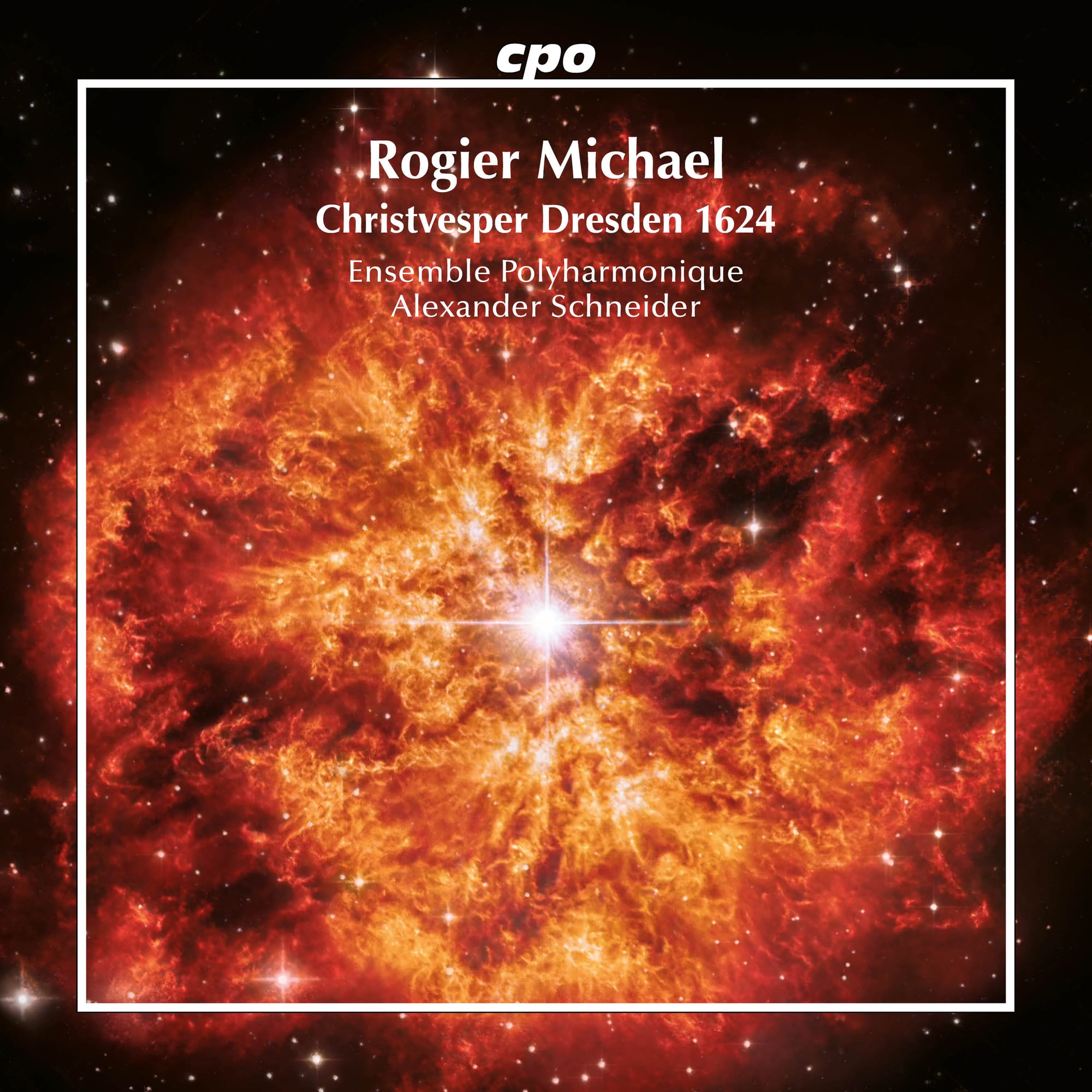
This is truly special. Rogier Michael, born in Mons, Belgium in around 1553 and died 1623, was a late example of the polyphonic Franco-Flemish school. His setting of the Weihnachtshisorie (Christmas story) dates from 1602 and was performed at teh Court of Dresden for some 50 years.
Michael studied with Andrea Gabrieli from 1569-72. In 1575 he moved to Dresden; after his tenure came Michael Praetorius, then Heinrich Schütz. He wrote two Passions (St Matthew and (possibly) Luke but not are lost. We do, however, have this gem. It is fascinating to go back in time, pre-Bach’s Weihnachts-Oratorium (1733/34).
The Christvesper date from 1624 and offer a glorious telling of the Christmas story, imaginative, some might say revelatory.
Here’s the trailer video:
The Ensemble Polyharmonique is exceptional. Listen to the purity of the top line in the opening track, and the exuberance of the final “Nee”s:
The passages of recitative are different from what one might expect a drone as opposed to continuo against solo voice. Here, the solo male voice announces Advent, defacing the glorious flowering of counterpoint that is the six-part motet, “Nun comma der Heiden Heiland,” voices paired with carefully-placed and balanced instrumental group:
,The harmonic trajectory is far from predictable. Listen to some of the delicious twists and turns in “Evangelium III”:
There is music of fresh, great joy here: listen to the “Gloria”s in this decidedly celebration “Ehre sei Gott,” again six voices:
There is delicacy here, tooL try the issue-delicate accompaniment to “Evangelium IX” and the ensuing “O Jesulein Suß,” sung by the purest treble voice:
The bassoon solo in the instrumental section of the “Lobgesang des Simeon,” “Wie schön leuchtet der Morgenstern”:
… the contrast to the beautifully phrased sol voice (soloists are not enumerated) is brilliant, itself followed by a chorale by Samuel Scheidt (“Herre nun laßt du deiner Diener”):
One of the most remarkable moments is this duet, “Stehe auf,” a moment of suspended time in its almost airborne scoring:
The Christvesper is like a magical Christmas tapestry: Michael carefully juxtaposes modes of expression, heightened here by the addition of the instrumental forces to vocal. The performance standard is miraculous, the recording (Münschenstein bei Basel, April 2024) perfectly judged in terms of capturing the acoustic without any blurring it concludes with a six-voice setting of Grates nunc onnes by Christoph Dementias (1567-1643):
Here on Classical Explorer, we previously met Ensemble Polyharmonique via another Dresden piece, Johann David Heinichen’s Dresden Vespers.
The disc is currently 3% off (so the mysterious price of £13.52) here. Spotify below (for some reason, this appears not to be on iDagio)








